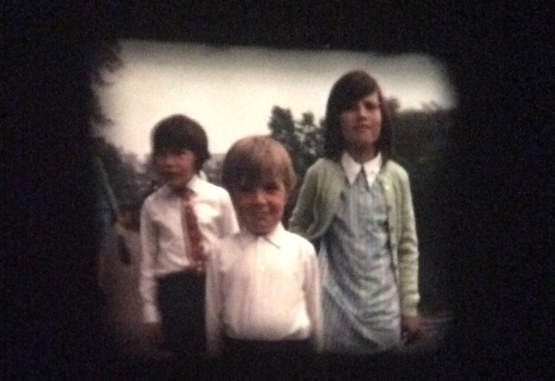Memory, pictures, labels, loss
Written by duckrabbitJohn MacPherson has written many thought-provoking posts about the relationship between memory and photography here on duckrabbit. Posts both about his Mother, who has dementia, and his beloved partner Melanie, who he nearly lost last year. It’s an important subject. Penny Russ‘s, who I met on twitter (@digitaldaisies) also recently wrote movingly about this subject on her blog. She kindly agreed to let me re-publish her thoughts here:

My dad has dementia. He is in residential care in a home in Tauranga NZ and is deteriorating rapidly. I went to see him a couple of months ago, before he went into care and I was worried, from his wife’s descriptions of his condition, that he wouldn’t recognise me. He did though, knew exactly who I was and could sort of reminisce with me although his ability to actually speak is quite impaired. He was pleased to see me. It was hard to leave.
Now, he is on the third floor of the care part of a huge ‘retirement village’ in a Taurangan suburb, slowly losing his memory and sliding away from his wife and sister who visit him regularly. Already he can’t quite place them both. He hears his wife’s voice, knows she is important to him, but isn’t quite sure who she is. It is a cruel hard illness and I’m glad, quite selfishly, that I am only experiencing it through the Skype conversations I have with his wife. That I don’t have to watch first hand while he forgets who I am, watch his memory of our lives together, apart, touching, diverging and running in parallel, watching all of those memories disappear into nothing.
As a present for my dad I made a photobook of pictures of me and my brothers and their children over the years – I thought it would help him to remember us, and it looks good, all printed up properly in a real book. The activities person on his ward goes through it with him each day to help keep his mind and his memory working. This person tells my dad’s wife that he is finding it difficult to place the older ‘us’, to put names to our faces, although he can name us all very clearly in the childhood photos. He thinks I am my mum – it was inevitable, as he reels back through his long term memory, that he would think that – I look just like her.
I brought back lots of slides taken by mum and dad on their separate trips over to the UK from NZ in the late 50s. There was also some super 8 film which I brought back with me. We watched it the other night, it is the usual short wobbly shots of toddling children, although there is quite a lot of Trooping the Colour footage – an indication of the fact that, at the beginning of the 60s he was a tourist here. It looks faded and slightly flickery projected onto the living room wall, this is what memories from long ago look like don’t they? And I wonder if they’re like that for my dad, or if they are gaining a clarity and immediacy as he loses his more recent ones. Most of all though, I feel bereft, that as his memory slips away, my past too is disappearing and all that will be left is the photographic evidence, much of which makes no sense without a label, or explanation. I cling onto it and will make it tell my own stories. That’s all I can do.

Discussion (1 Comment)
Echoing many of my own thoughts Penny.
I guess it affects individuals differently, but with my own mum I’ve realized that whilst she may be losing her ‘past’ and the ‘future’ is something she will now not ever be able to plan for, her enjoyment of her ‘now’ can be intense. I think we often lose sight of that – we are so used to ‘casting our minds back’ to recall joyful moments, we cannot conceive of what losing that ability to recall must be like. But in trying to, we lose sight of the fact that there can still be utter magic for our stricken parents ‘in the moment’, and those moments need to be celebrated in the here an now – that’s what good caring staff can provide.
It’s an interesting metaphor ‘the flickery projected memories’ that old film represents – but when you tease it apart you may realize that what it (film) presents is an illusion, every bit as much of an illusion as stills are. Stills record only a fragment of time, moments, around which all kinds of other unseen things happened. They are not a record of ‘everything’. And so too with film: at 25 frames per second a lot of what was being ‘recorded’ was missed – fallen through the gaps between frames – it’s long ago slipped away between those cracks and when we ever viewed it, it was always ‘made up’. Whenever we watch ‘film’ we must ‘make up’ those missing bits in between to give ourselves some sense of the unfolding narrative.
This is a kind of a roundabout way of reassuring you that your past is not disappearing too, only the fragments which were already lost between the frames of your dad’s experience, but your own experience from which you may still make up ‘the story of you’ continues.
And writing it down as you’ve done here and on your blog is to nail at least some of the story firmly to something resembling posterity.